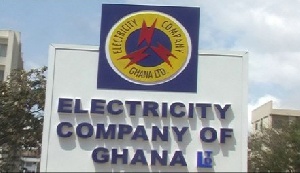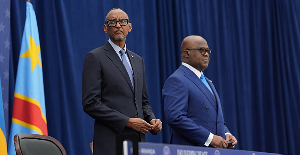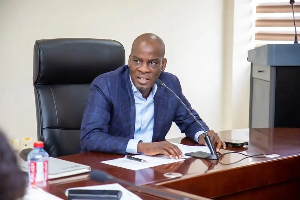As demanded by the Millennium Challenge Compact II, the government of Ghana has begun settling its indebtedness to struggling power distributor the Electricity Company of Ghana – although the full complement of debt is undergoing an audit.
Government, according to a report of the Finance Committee of Parliament, has in five quarterly installments beginning April 2015 paid a total of GHC180million to the ECG, in what is christened the Electric Distribution Utility Payment Action Plan.
The Committee referred to the payments as constituting “substantial compliance” with one of the conditions the country must meet before the US$498million MCC money is released in full.
Dr. Mark Assibey-Yeboah, a member of the Finance Committee of Parliament, told the B&FT that the payment made so far is however part of some GHC700million agreed between the government and ECG as payment due up to 2013, while the rest of the debt undergoes auditing.
Auditing firm KPMG, he said, did the first audit that arrived at the GHC700million initial debt, and another auditing is ongoing to establish the full complement of the debt.
This, he said, is because there are disagreements on the two sides as to exactly how much government should pay to the ECG.
Indeed, in December before he resigned as Power Minister, Dr. Kwabena Donkor told the B&FT that since government services debts of the utilities, he did not think government owed ECG as much as has been speculated in the public sphere.
“Technically, government does not owe because it is servicing ECG, VRA and GRIDCo debts; and if we do the offset, which we must do in accounting, we will realise that the owing is the other way round. That is why I don’t make much noise about government’s debt, because I know the reality,” the former minister said.
Unverified reports had pegged government’s indebtedness to the ECG at around US$500million. If this figure is tenable, then government has a long way to go in settling the debt, which it must do as one of the conditions for the full roll-out of the Millennium Challenge Compact II.
Some commentators have argued it is the government debt that is crippling the ECG, and so if government settles this debt there will be no need to hand the company over to private sector management.
Government insists the agreement it will have with whichever private entity takes over the ECG will be on a “concession” basis, and not a complete privatisation -- whereby the said entity will manage the ECG for a stated period of time.
The Americans are also asking for a quarterly review of electricity tariffs, and so -- as happened in December 2015 -- there will be another tariff review in April this year.
Parliament last Friday ratified the MCC treaty, after Chairman of the Finance Committee, James Avedzi, told the house that the conditions which were set out before presentation of the Compact to the MCC Board have been met.
These include the approval of a Gas Action Plan and a long-term Gas Sector Master Plan, Electricity Company of Ghana Restructuring, Electricity Distribution Utility Payment Action Plan, and Continuation of quarterly tariff adjustments.
The money from the compact is to be used for purposes that include an ECG Financial and Operational Turnaround Project, a NEDCo Financial and Operational Turnaround Project, and a Regulatory Strengthening and Capacity Building Project.
Others are an Access Project, a Power Generation Sector Improvement Project, and an Energy Efficiency and Demand Side Management Project.
Business News of Wednesday, 23 March 2016
Source: B&FT
Gov’t pays ECG GHC180m as demanded by MCC
Entertainment












